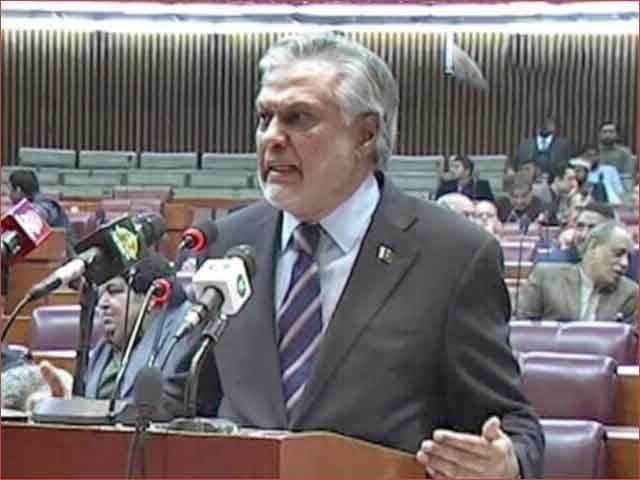 Web Desk
Web Desk

In a recent development, Minister for Finance and Revenue, Ishaq Dar, revealed that the coalition government of Pakistan is actively in talks with friendly countries to restructure its bilateral debts, aiming to alleviate the financial challenges faced by the cash-strapped nation.
During an appearance on the Geo News program “Aaj Shahzeb Khanzada Kay Saath,” Minister Dar candidly stated that the government is committed to debt restructuring. He emphasized that the sovereign deposits, which are rolled over annually, will continue to be rolled over in the future.
Minister Dar expressed his opposition to adopting a strategy involving “haircuts,” as it would be disheartening to inform creditors that Pakistan cannot fulfill its obligation of returning the Rs100 billion debt owed to them. He firmly stated that borrowed money should be repaid, highlighting that debt restructuring is not inherently negative. By servicing its interest payments and staggering principal repayments, the country’s cash flow can be improved.
Under the leadership of Prime Minister Shehbaz Sharif, the government unveiled a budget of Rs14.5 trillion (approximately $50.5 billion), with more than half of the funds allocated to servicing the 7.3 trillion rupees of debt.
Pakistan’s economy has been grappling with a balance-of-payments crisis as it endeavors to manage its debilitating external debt. Moreover, months of political turmoil have deterred potential foreign investments, exacerbating the country’s financial situation.
Minister Dar did not shy away from attributing a significant portion of the political instability in Pakistan to the International Monetary Fund (IMF). He criticized the IMF for delaying the 9th review, emphasizing that it was long overdue and should have been completed in February.
When confronted with the question of whether the IMF mistrusted him personally, Minister Dar expressed visible frustration and denounced the unfair treatment Pakistan had received from the organization. He asserted that the IMF’s actions had contributed to political instability in the country.
While Minister Dar hoped that the 9th review would conclude this month, he voiced his concerns about the consequences of its non-completion. He believed it would be unfair if the review were to remain unresolved. He also called upon the Pakistani media to shed light on the IMF’s unreasonable demands.
Minister Dar acknowledged that Pakistan had fulfilled the IMF’s demands, yet the organization still lacked trust in the country due to the previous government’s failure to honor commitments made in 2019. He stressed the importance of the IMF trusting Pakistan’s ability to achieve revenue targets.
Regarding the issue of friendly countries not providing Pakistan with a $2 billion loan to meet the IMF’s requirements, Minister Dar disclosed that the IMF desired joint talks with nations such as Saudi Arabia and the UAE. However, Pakistan expressed its independence and declined the “hand-holding” approach, asserting that the IMF should carry out its professional duties.
Minister Dar revealed that Pakistan intended to engage in bilateral discussions with friendly countries. Notably, he clarified that Pakistan did not necessarily require $2 billion from these nations. He further mentioned that had the board meeting occurred in February, Pakistan would have received the pending reviews amounting to $2 billion.
Expressing concern, Minister Dar implied that Pakistan might be caught in geopolitical circumstances but refrained from discussing it further on television.
Minister Dar commended his government for bridging the credibility gap left by the previous administration and implementing measures, including undervaluing the exchange rate. Despite these efforts, the IMF has yet to conclude the 9th review, a stance that Minister Dar deemed unreasonable.
In conclusion, Pakistan is actively engaging with friendly nations to restructure bilateral debts, as stated by Finance Minister Ishaq Dar. While emphasizing the importance of debt repayment,

